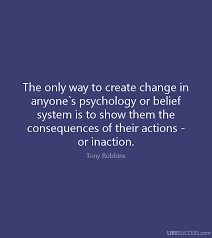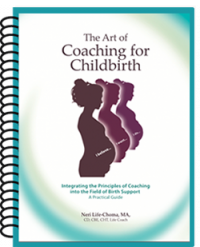
Coaching Your Birthing Clients after an Alarming OB Visit During Birth
Last week I was supporting a lovely client; an educated and committed mother who hired me as her doula for her first birth. We went through a series of prenatal coaching sessions and drew her belly map. She was practicing the daily activities to encourage optimal fetal position, as well as labor support tools with the guidance of my DVD ‘Practicing for an Active Birth’. She had prepared for her birth. As sometimes happen, the onset of her labor was unpredictably challenging; her water broke and after 36 hours- some spent at home and some at the hospital, she was mostly cramping, but not contracting. After about three hours in L&D, the on-call doctor came into the room and began talking about administering misoprostol. When she called me she said that the doctor has explained to her that ‘taking the medicine will not impact her desire for natural childbirth. Coaching my birth client after an alarming OB visit during her birth is a challenging situation for doulas.

These situation do not emerge as an emergency situation during childbirth, but as a situation that calls for birth management: a symptom either appears during the birth, or some measurable parameters change, and the medical staff feels the need to actively manage the birth, which means they want to impose restrictions, administer drugs or perform a medical procedure. When our birth clients encounter a situation which bears the potential deviation from their desired birth experience, they need us the most. The clients require our support and guidance because they are afraid and stressed.
So why are we challenged?
To begin with, we care and empathize with our clients; especially those clients who expressed their wish to have a natural, unmedicated childbirth. We feel their frustration when their birth does not unfold as smooth as they hoped, and a condition imposes some restrictions or medical interventions. Another challenge origins in our professional restrictions – doulas are not medically trained and are prohibited from advising clients around medical complications or interventions. We can empower our clients to advocate for themselves; to ask questions regarding the benefits and the potential risks of the medical action, and to make sure that the medical care consists of evidence-based research. However, almost all doula training program fails to clarify how to empower clients without projecting our opinion on the matter. How do we avoid stating our opinion yet empower them to inquire and advocate for themselves? Logically, we would not encourage them to advocate unless we feel uncomfortable with what the doctor has just told them, right? In addition, although doulas are not medically trained, we are far more knowledgeable than our clients when it comes to medical conditions, complications, and interventions in childbirth. While they have no knowledge base to help them navigate and make an informed decision, we do have a lot of knowledge and can actually tell when a doctor provides evidence-based care and respects our client’s intelligence and personal requests or just instills fear.
And there is one more reason for the challenge doulas feel in these situations, which I think is critical- it is the paradox of an act of empowerment which often results in stressed and confused clients. When we guide the client to question medical advice further, the clients are in fear because of what they heard from the OB, an expert, and authority who just told them something was wrong and needed to be managed, and they are also confused because they do not know which leader to follow. You see, even when doulas refrain from advising, as they must, when encouraging clients to advocate for themselves, we instill enough doubt and skepticism to stress them out. We encourage them to talk to an authority and questions its recommendation; an authority who they hold responsible for the outcomes of their birth. We have good intentions to empower them, but often enough we feel that we impose additional challenges. As a result, we are trapped in a paradox between our wish to serve, lead and empower and our sense that by doing so we are triggering stress and confusion.
I found the coaching strategies and principles to be very helpful in these situations. From a coaching position, I partner up with clients, instead of being one more expert or another authority who knows best how to achieve natural childbirth. This position frees me and my clients from the paradox of empowerment that triggers stress. In addition, coaching relies on questions, rather than answers, therefore it helps the clients find the answers within themselves. By asking strong search questions you can help your client distinguish truth from myth, and facilitate alignment between her belief system and the decisions she makes. Here is the coaching conversation that I conducted with my client after the OB told her that misoprostol won’t have any impact on her desire for unmedicated and physiological childbirth.
Me: “What do you think about what the doctor just told you about misoprostol?”
Client: “I don’t know, that’s why I called you”.
Me: “Let’s take it to a different but similar situation; imagine for a moment that you suffer menstrual cramps pain. What are your choices when you have them?”
Client: “I can take a relaxing shower, go to bed and try to relax, or take Advil”.
Me: “OK, is Advil considered medicine?
Client: “Sure”.
Me: ‘When you buy Advil, does it come with a label stating all the potential side effect?”
Client: “Yes.”
Me: “ So when choosing to take a medicine like Advil, are you aware of some potential side effects?”
Client: “Yes”.
Me: “Now take it back to your current situation. Can you see some similarities?”
Client: “Yes. The doctor is recommending medicine, and every medication comes with potential side effects”.
Me: “Right, so what do you think now about what the doctor just told you?”
Client: “Well, I understand he can’t promise that misoprostol won’t impact the rest of my birth because we don’t know how I will react to it”.
Me: “So what would you like to do about it?”
Client: “I think that as long as it’s not medically necessary I would like to avoid the chance that I will not react well to the medicine.”
Me: “OK, How do you feel about sharing your understanding with your partner and with the medical staff?”
Client: “Good, I can do that. I’ll call later to update you. Thanks.
When I look back at the way I practiced before integrating coaching strategies into my doula practice, I realize that I came from an expert position, which is not different than the doctor’s. In this situation, I would have said something like: ” The doctor can’t guarantee you that misoprostol will have no impacts on your desired birth experience. Every medicine comes with its set of side effects and risks”. I see a huge difference in asking questions that lead the client to find the answer that is right for her. For example, in the scenario above, my client could have answered my question in a completely different way. She could have said: “Yes, but when I suffer menstrual cramps I do take Advil. I trust that I won’t develop all these scary side effects”. This answer would have taken our conversation to a different direction which would probably end up with a different conclusion. The shift here is that we invite our birth clients to connect with their belief system, facilitating alignment between their beliefs and their actions. Therefore, our clients have more chances to conduct themselves well during childbirth and to reach optimal performance based on their belief system, strengths, and skills.
In recognition of World Doula Week, I will be leading a free webinar which you can now join: The Power of Prenatal Coaching. Please contact me to learn more about coaching for childbirth.
- Overshadowing the Transformative Essence of Childbirth with Data - July 10, 2024
- Navigating the Epidural Dilemma - May 28, 2024
- Informed Decision in Birth Support: A Myth of Empowerment? - April 29, 2024


